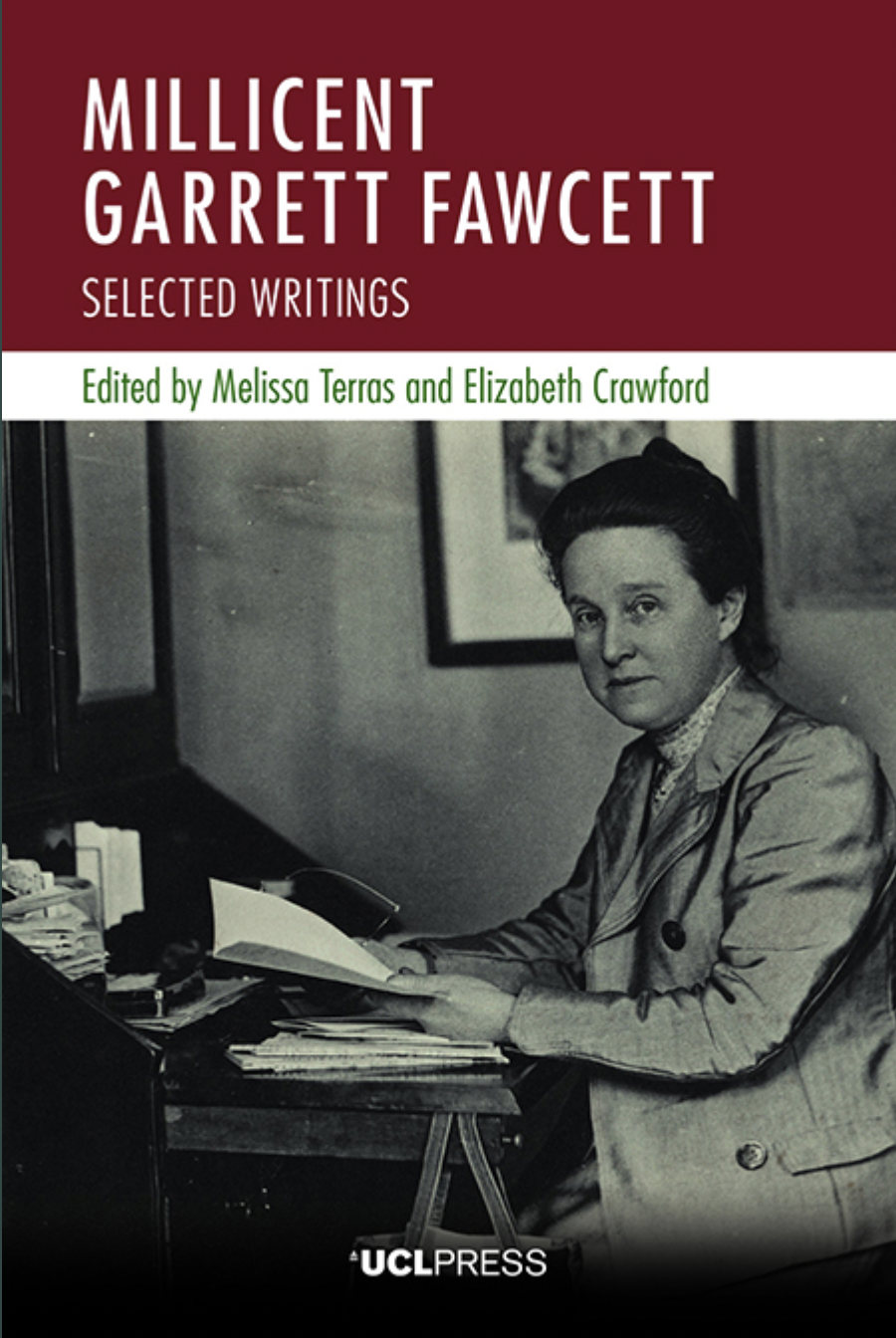
I’m very pleased to have published, with the leading Suffrage historian Elizabeth Crawford, Millicent Garrett Fawcett: Selected Writings – available open access from UCL Press – a new collection of writings by this leading UK suffragist and campaigner.
How does this relate to my own interests and trajectory? A blog post in the LSE Review of Books covers this:
Fawcett was one of the most famous women campaigners in the UK, but by the early 21st century, her achievements were, if not forgotten, then not entirely understood. The last scholarly book to be written about Fawcett was published in 1991, and no collection of her germinal speeches, pamphlets and newspaper columns has been attempted – until now.
There are various reasons for this. The UK copyright for published works authored by Fawcett expired in 1999, 70 years after her death, and so it would have only been legally possible to create a compilation of her writings – scattered across various international publications – relatively recently. However, there were also the issues of complexity and range, and of accessing often ephemeral sources… Only an ambitious (yet unfunded) plan to hunt within mass-digitised content and to undertake digitisation-on-demand for sources which were not yet digitally available allowed us to locate and synthesise all of Fawcett’s writings that we could, including discovering a good few that had never been noted before in her bibliography…
The work that went into this book – including its scale and close attention to detail – would not have been possible without the digitised information environment as well as access to both commercial and openly licensed digital cultural heritage. The timing of the compilation of this collection, too, was coincidental in only having access to digital resources: although we had luckily collected Fawcett’s writings before the COVID-19 pandemic, the write up and analysis happened at a time of social distancing, when physical access to most libraries and archives was impossible.
Millicent Garrett Fawcett: Selected Writings is therefore an example of how digital cultural heritage can be used to enhance the understanding of individuals who have not previously been centred in modern academic inquiry. Feminist digitisation practices in libraries and archives – those which centre women’s lives and their histories, taking ownership of information that has not been covered by institutionally supported digitisation or funded initiatives – can be a way to resurface feminist voices, biographies and contributions to society. The combination of using digitisation to find, source and gather material, and using mass-digitised content to understand and interrogate it, allows new, broader histories to be compiled. The digital information environment also allows these histories to be shared: we are pleased that Millicent Garrett Fawcett is available for free download via open access from UCL Press. Millicent Garrett Fawcett’s words changed a society: digital means were able to gather, understand and share them, so that her words can be read again, and understood, freely, by all.
